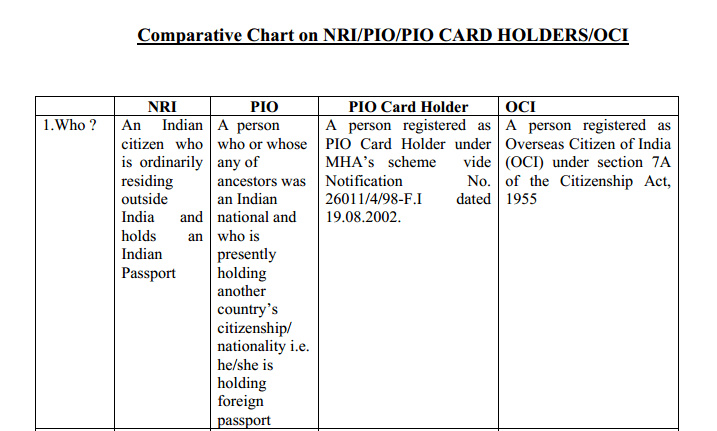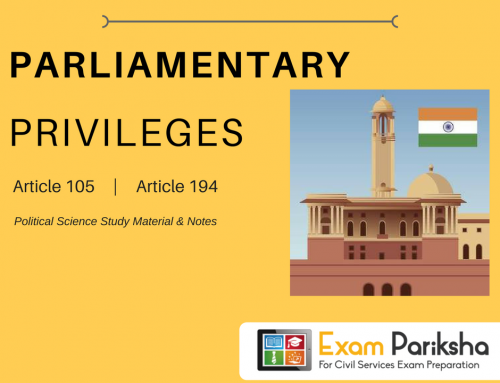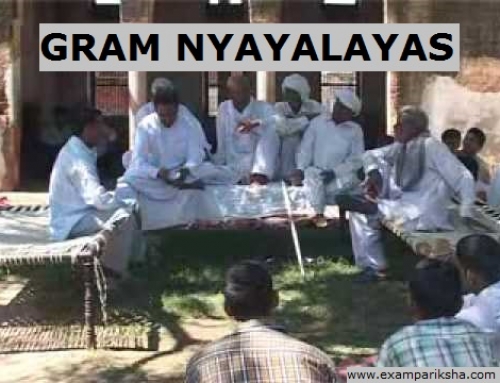The constitution of India gives ‘Single Citizenship” for all its citizens India. This implies that there is no disparate domicile for a state.
Provisions for citizenship are mentioned in Article 5 to 11 in Part II of the Constitution. Individuals who are not Indian Citizens are onsideref Aliens. Aliens do not enjoy rights mentioned in Article 15,16,19,29,30 of the Constitution.
Indian Citizenship can be acquired by following four means:
A) Citizenship by birth :-
- Any person born in India on or after the 26th day of January,1950, but before the commencement of 1986 Act on 1st day of July, 1987, is a citizen of India by birth. ;
- Any person born on or after the 1st day of July, 1987, but before the commencement of the Citizenship (Amendment) Act, 2003 and either of whose parents is a citizen of India at the time of his birth is a citizen of India.
- Any person born on or after the commencement of the Citizenship (Amendment) Act, 2003, where either- (i) both of his parents are citizens of India; or (ii) one of whose parents is a citizen of India and the other is not an illegal migrant at the time of his birth, shall be a citizen of India by birth.
- Exceptions: A person shall not be a citizen of India by virtue of this section, if at the time of his birth- (a) either his father or mother possesses such immunity from suits and legal process as is accorded to an envoy of a foreign sovereign power accredited to the President of India and he or she, is not a citizen of India; (b) his father or mother is an enemy alien and the birth occurs in a place then under occupation by the enemy.
B) Citizenship by descent :-
- A person born outside India on or after the 26th day of January, 1950, but before the 10th day of December, 1992, if his father is a citizen of India at the time of his birth shall be a citizen of India by descent.
- A person born outside India on or after the 10th day of December,1992, if either of his parents is a citizen of India at the time of his birth will be a citizen of India by descent.
- Since 2004, a person shall not be a citizen of India by virtue of this section, unless his birth is registered at an Indian consulate within one year of the date of birth.
C) Citizenship by registration :-
The Central Government may, on an application, register as a citizen of India under section 5 of Citizenship Act 1955 (any person not being an illegal migrant) if he belongs to any of the following categories:
- a person of Indian origin who are ordinarily resident in India for seven years before making an application for registration;
- a person of Indian origin who is ordinarily resident in any country or place outside undivided India;
- a person who is married to a citizen of India and is ordinarily resident in India for seven years before making an application for registration.
- minor children of persons who are citizens of India;
- a person of full age and capacity who, or either of his parents, was earlier citizen of independent India, and has been residing in India for one year immediately before making an application for registration;
- a person of full age and capacity who has been registered as an overseas citizen of India for five years, and who has been residing in India for one year before making an application for registration.
D) Citizenship by naturalization :-
Citizenship of India can be acquired by an Alien by naturalization in following manner:
- When any person of full age and capacity not being an illegal migrant makes an application for the grant of a certificate of naturalization to him, the Central Government may, if satisfied that the applicant is qualified for naturalization under the provisions of the Third Schedule- (must have lived a total of 12 years in India in a period of 14 years, and must have lived for 12 months uninterrupted in India prior to application for citizenship), grant to him a certificate of naturalization. The conditions specified in the Third Schedule may be waived if in the opinion of the Central Government, the applicant is a person who has rendered distinguished service to the cause of science, philosophy, art, literature, world peace or human progress generally.
- The person to whom a certificate of naturalization is granted under sub-section (1) shall, on taking the oath of allegiance in the form specified in the Second Schedule, be a citizen of India by naturalization as from the date on which that certificate is granted.
Termination/Renunciation of citizenship :-
- Renunciation: Renunciation is covered under Section 8 of the Citizenship Act 1955. If an adult makes a declaration of renunciation of Indian Citizenship , he would lose Indian Citizenship. Along with him, any minor child of that person also loses Indian Citizenship from the date of renunciation. The child has the right to resume Indian Citizenship when he turns eighteen.
- Termination :It is covered under Section 9 of Citizenship Act 1955. Any Indian Citizen who by naturalization or registration acquires the citizenship of another country shall cease to be a Citizen of India.
Indians living Abroad:
Indian Constitution forbids dual citizenship/ nationality which implies that a person cannot have any other countries’ passport simultaneously with the Indian one. Indians living abroad have been classified into three categories : NRI, PIO, OCI. There are minor differences in these three. We shall understand each one separately to deveop a clear concept:
- NRI (Non-Resident Indian) – Holder of Indian passport and temporarily immigrated to another country for six months or more.
- PIO (Persons of Indian Origin) – Holder of Non-Indian passport, and can prove their Indian origin up to three generations. Spouses of Indian citizens or persons of Indian citizens.
- OCI (Overseas Citizens of India) – Persons of Indian origin who are holder of another country’s passport which allows its citizens to hold dual citizenship of some kind. It is not full citizenship of India and hence, does not amount to dual citizenship .






